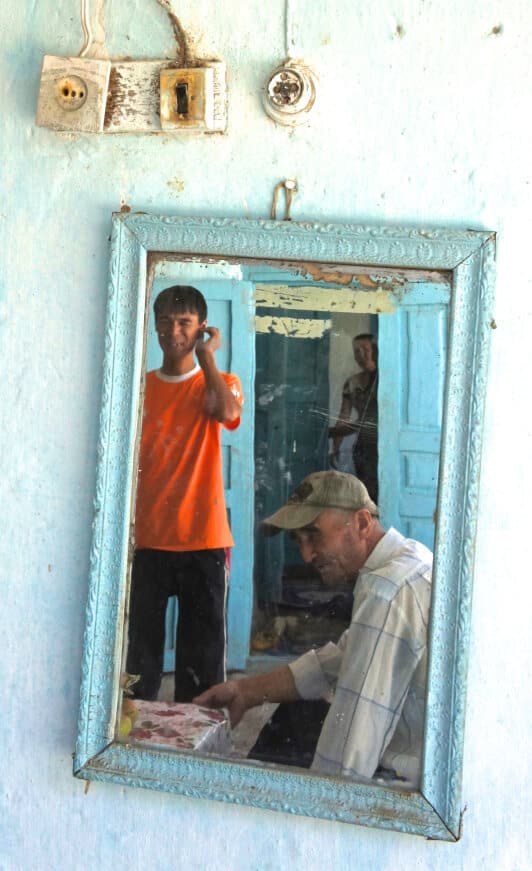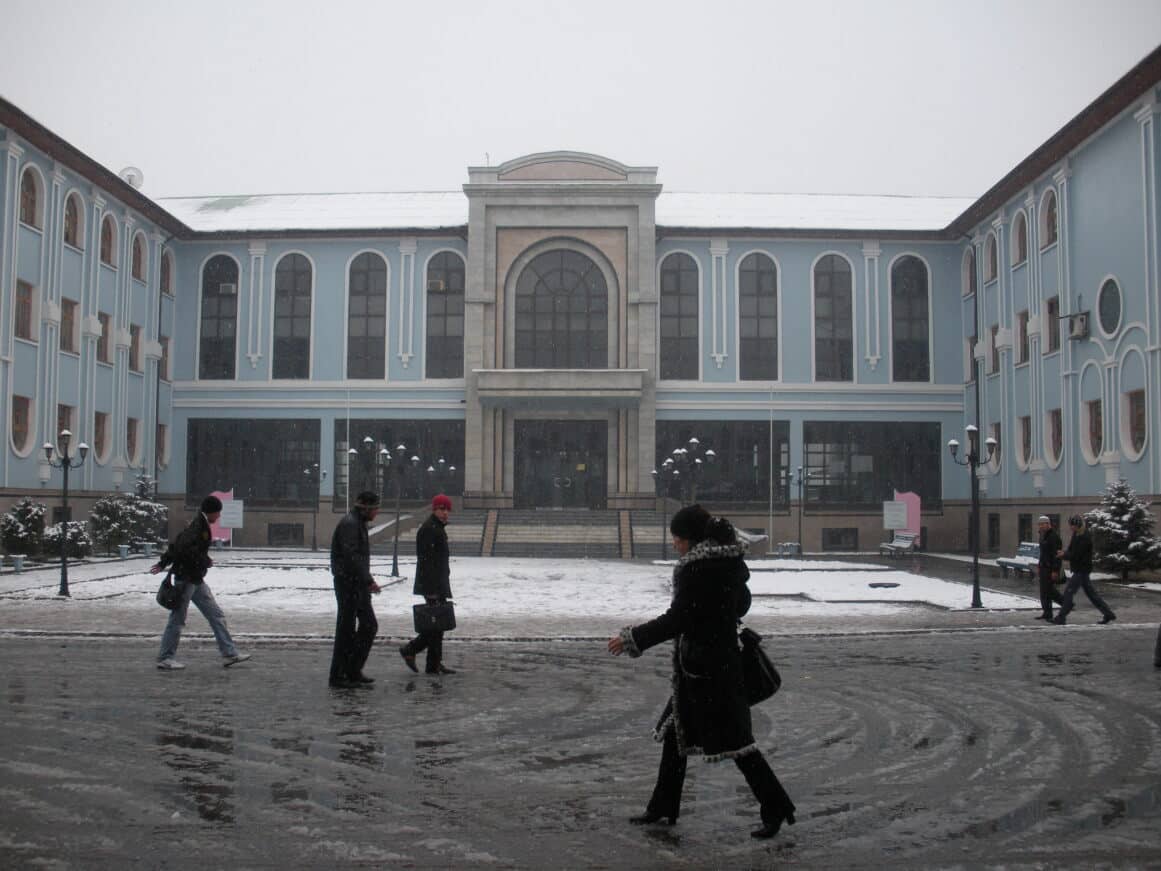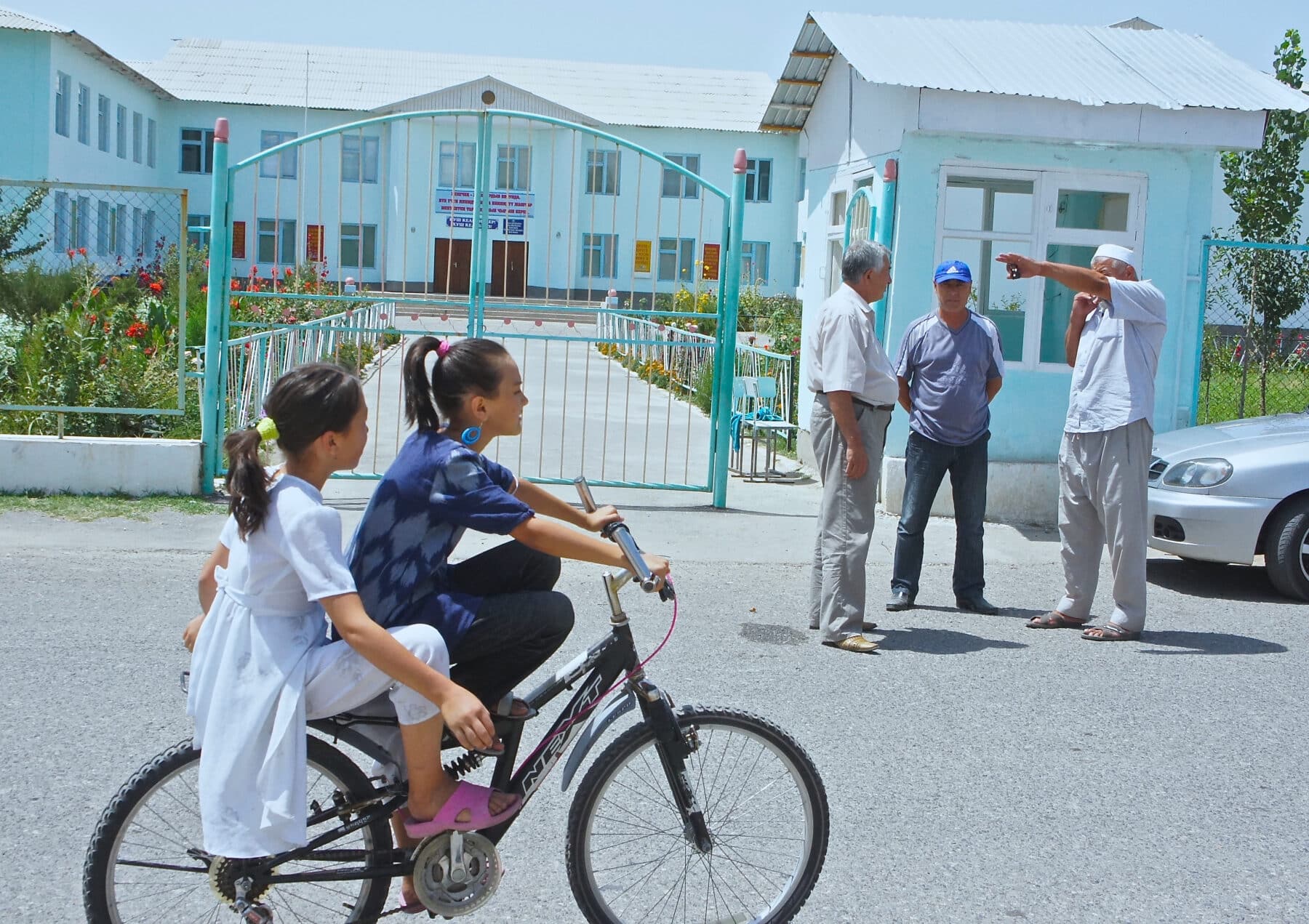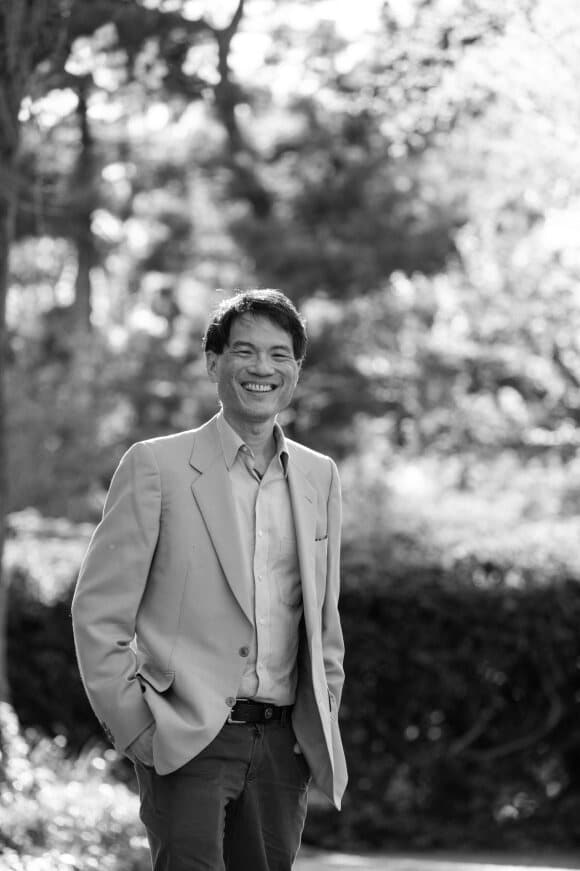Imposing a normative framework that dismisses prevalent practices as “corrupt” risks blinding analysis to what is really going on.
The cultivation of trust seems central to how power and wealth operate in Eurasia. Across businesses, governmental structures, neighborhood organizations, religious associations, and other institutions, personal relations of trust and obligation enable, to an important degree, how things get done in the region. To be sure, state laws, institutional rules, and social norms also stabilize and routinize a level of trust and mutual expectation necessary for the conduct of affairs in society. But those constraints always exist in productive tension and fluidity with respect to more ad hoc, interpersonal arrangements in Eurasia. In some cases, Western and other observers call the latter “corruption,” imposing a judgement that relations of personal fealty are always less ethical or efficient than a “rules-based system,” where personal allegiances and arrangements defer to objective procedures.
The intent of this piece is not to argue for the opposite (that clientelism is somehow better than something called the “rule of law”), but rather to foreground the centrality of interpersonal trust in understanding how power and wealth operate in Eurasia, and what that means for field-based research in the region. Imposing a normative framework that dismisses prevalent practices as “corrupt” risks blinding analysis to what is really going on from the actors’ points of view. Avoiding the corruption framework may also help nudge research toward “un-colonial” methodologies and approaches to writing about the region. By “Eurasia,” I refer to not only the territory of the former Soviet Union, but the entire Asia-Europe continental space where people, finance, ideas, and practices circulate; and political projects are imagined, as Jane Burbank and Fred Cooper recently wrote about. This use of “Eurasia,” as a family of political-economic practices across a geographical expanse, attempts to claim the term away from those very imperial projects that are being asserted to this day. It asserts an un-colonial meaning for “Eurasia” for the sake of scholarly analysis. I employ “un-colonial” in the modest sense of stepping away from a conceptual subjection to not only Russian geopolitical imaginaries, but also 21st-century liberal standards of markets and governance as applied to Eurasian ways of conducting social, economic, and political affairs. This piece is not a refutation of those standards, but rather an appeal to give more consideration to the world as actually seen and inhabited by billions of humans today.
That is where scholarship in an attempted un-colonial mode comes in. Un-colonial research in the region seeks to incorporate into methodology and analysis more Eurasian ways of inhabiting the world. This includes worldview, ideas, ethos, sensibilities, and embodied practices. The goal below is to sketch out how one might take an un-colonial approach to understanding power and wealth in Eurasia. My argument is that interpersonal trust is central to how power and wealth operate. But if trust is glue and lubricant for Eurasian affairs, it is also a basis of an un-colonial ethnography seeking to understand it. Finally, trust might be the means by which Eurasians imagine better futures for themselves. Trust can be topic, method, and solution.

Trust in Eurasian Power and Wealth
Trust in economic and political affairs embeds specific, culturally-inflected understandings about how personal relations structure mutual obligations to deliver goods or perform deeds, and about how those relations are cultivated, maintained, strained, or broken. Ethnography on Eurasian wealth and power today thus needs to unpack those culturally-specific assumptions and practices of trust.
One place to see the centrality of trust is a largely unnoticed trend in Central Asian political economies since the early 2000s. Local leaders are assembling private businesses, institutions, and networks that mobilize people and resources in order to accumulate power and dispense benefits to their constituencies. In a few documented cases, these (male) businessmen work hard to cultivate a relation of general patron to an entire city or village. Some operate almost as a micro-state providing goods and services. They build and run businesses, bazaars, universities, mosques, medical clinics, theaters, and newspapers, which offer jobs, infrastructure, arts, communitas, and stability. They provide social protections for pensioners, widows, the unemployed, and the poor. These patrons make themselves indispensable to the community amidst pervasive doubt about the capacity of states to secure the commonweal. They also tap into cultural tropes of a beneficent, selfless benefactor of the common good. Every society has its patrons and philanthropists, but there are culturally-specific ways that these “Big Men” perform their exemplification of “good wealth,” and there are specific features of the Central Asian political economy that demand certain kinds of arrangements to stay successful. The latter includes obtaining the consent of and offering benefits to relevant state officials, especially if the local patron belongs to an ethnic minority under default suspicion of disloyalty to the state, such as Uzbeks in Kyrgyzstan. And so, Central Asian patrons need to be both economic and political entrepreneurs, requiring both material and discursive labor.
How can scholars incorporate more Eurasian ways of inhabiting the world?
The cultivation of trust runs through all of these endeavors. These efforts rely on networks of allies and subordinates to build and run, who are bound to the patron in relations of trust, dependence, and obligation. The patron also builds trust with his wider constituencies by “serving the people.” Interestingly, these patrons do all this by building institutions (schools, media, etc.). Yet, in the cases reviewed in the studies cited above, public trust is directed primarily at the personhood of the Big Man in question, rather than to the institutions. People talk about “his” business acumen, his political savvy, his intelligence, his ruthlessness, his generosity, his religious piety, his reliability, his record of performance. For example, Kadyrjan Batirov’s suite of institutions in Jalal-Abad, Kyrgyzstan during the 2000s were admired or despised because of the man himself, and he was often seen as metonymic of them: the Batirov university, the Batirov Friday mosque, etc. He and the other Central Asian patrons are what I have called a Khan figure: leaders who generate thick, passionate discourses about their personal qualities that make them seem eminently fit to rule.
Trust, loyalty, obligation, and performance are therefore due fundamentally to the person of the patron, and conversely, the patron owes these things in different forms to his clients and constituencies. Institutions, norms, and laws have their place as quotidian frames for the conduct of affairs, but those can be subordinated to, or at least inflected by and viewed in the light of, personal allegiance and arrangements with one’s patron.

Another place to witness this kind of personal trust and obligation are the networks of wealthy and powerful people across the Eurasian continental space. These are informal, personal relationships that span beyond work hierarchies within one institution and may connect between multiple units of state, corporation, NGO, and other organizational forms. These networks can also cross economic sectors, country, and possibly region, spanning Eurasia and beyond with a host of different kinds of relationships that express the financial, legal, property, philanthropic, educational, recreational, artistic, and other elite interests. To speak more concretely in a fictitious example, a Eurasian businessperson’s regular circuit of concern may include a house in London, yacht in Cyprus, companies incorporated in the Cayman Islands and operating throughout Eurasia, a sports team in the United States, a museum board meeting in Germany, kids at Harvard, vacations in Turkey or Switzerland, and shopping in Dubai or Paris. Each interest on the Eurasian and world map expresses bundles of personal relationships with partners, employees, family, handlers, and professional service providers (lawyers, accountants, bankers, property managers, yacht crew, etc.). Personal relations of trust are key to operating across far-flung geographies and heterogenous people.
The question becomes, how is trust established and maintained for peripatetic Eurasian elites when working relations are needed between people who are not relatives, work in other sectors, live in other countries, and operate under other political-economic systems? On what basis should one begin to trust such a potential business partner or service provider? An ethnographer may hypothesize that cultural capital is central to trust establishment, and that cultural capital is manifest in the display of consumption tastes. Economic elites live distinctive lifestyles. Conspicuous consumption is partly about claiming prestige in the eyes of peers. But I think it is also about displaying aesthetic refinement in order to signal to potential partners one’s trustworthiness.
The hypothesis here is that Eurasian elites operate with an assumption that aesthetic judgement is deeply linked with moral constitution. Particular choices of dress, jewelry, interior decoration, art, cuisine, and hobbies may set up conditions where elites are more inclined to trust and perform promises to each other. Material tastes enact shared distinction in Bourdieu’s sense, and may be seen as revealing a person’s secure elite status (not “new money”) and reliable character more generally. Performing the role of benefactor in community-building or philanthropic work, as noted above, could also add to one’s bona fides. Fieldwork-based research on Eurasian elites needs to look at the aesthetics and performativity of assessing, offering, or accepting trust in concrete venues (a resort party, a museum fundraiser, a yacht excursion), the very moments and sites where loyalty is cultivated, alliances forged, ventures initiated, and interests become aligned. However, the motivations for loyalty for a Tashkent businessperson raised with certain practices of social obligation and notions of moral personhood, say, may diverge from that of counterparties in Beijing, Moscow, or London, with a consequential bearing on the function of transnational business networks. Exactly how cultural assumptions about trustworthiness may differ among elites, and with what implications for the operations of wealth and power across Eurasia, remain open questions for research.
Un-colonial Research on Eurasian Power and Wealth
What would it mean to take an un-colonial approach to this task? And why? In the following modest yet necessary steps toward a reply, trust turns out to weave throughout.
First, researchers should avoid immediately writing off prevalent Eurasian economic and political practices as “corrupt” when they fail to conform to rules-based standards surrounding free markets and democratic governance. Dismissing much of Eurasian life as problematic or illegitimate tends to blind the observer to what is actually going on. Avoiding this does not require denying the value of those standards in some form, but it does require suspending judgement long enough to design and conduct research that seeks to see Eurasian practices from the points of view of the actors themselves. Conducting business according to “informal” personal networks of trust and obligation that may supersede “formal” state laws and institutional norms does create its own moral dilemmas. Those dilemmas are more complex than an outsider’s metric along a context-free corruption index. Eurasian elites navigate multiple and variegated pulls of obligation in their networks. With every decision, they may weigh trade-offs between allegiance to their clients, family, allies, company, state agency, and publics. Divulging how they actually experience the tug of each kind of obligation and exercise moral reasoning to navigate them is what un-colonial ethnographic research can contribute.

Morgan Y. Liu.
It means avoiding imposing grids of interpretation that lack self-reflection and the essential practice of checking with field interlocutors. Interpretive frames can be “colonial” in the sense that they often reflect the political, economic, and intellectual interests of the states and institutions where the investigator is raised, trained, paid, or situated. Typical ones in Eurasia include reading the complex, multi-directional transformations since 1989 in terms of a linear “transition” to markets, democracy, or rule of law. Researchers need to be keenly aware of whose interpretive grids are being used, with what justification, to what ends, and serving whose interests. The goal should be to employ grids of interpretation in a more context-sensitive, interests-aware, dialogic, and consultative manner.
Second, building consultation into research also allows for the building of trust between the investigators and interlocutors. This is necessary for research. If trust is glue and lubricant in Eurasian interpersonal networks, then studying their operations requires fieldworkers themselves to enter those networks on the basis of trust. Ethnographic knowledge is gathered by not an aloof scientist testing subjects in a box, but rather human investigators in social interaction with equally human interlocutors. Trust-building via mutuality must be built into fieldwork. The best ethnography is done when mutuality is embraced not only as a means to data collection but as worthy in itself. This posture requires reciprocity, keeping in mind the needs of one’s hosts while pursuing a research agenda. Perhaps they want to hear stories about where the researcher is from or has visited as much as the researcher wants to hear their stories about their neighborhood or life course. Perhaps they want access to information, language partners, outside opportunities, or help in publishing in international journals or applying for schools outside their country. It means taking genuine interest and appropriate, practical action in their struggles and aspirations. Because some Eurasians prioritize becoming good at recognizing trustworthy partners in their affairs, the researcher must actually become a trustworthy partner to whatever extent possible.
An un-colonial ethnography eschews a project set-up where the investigator fully controls the methodology.
Differences in power between scholar and interlocutor in fieldwork research encounters are inevitable. Mutuality does not erase power differentials, but it constitutes a necessary measure against exploitation in the research relationship. It is also a basic step toward forging an un-colonial ethnography. Mutuality entails moving the scholarly enterprise away from an extractive, instrumental posture that leverages from and reproduces power advantages. And so, an un-colonial ethnography eschews a project set-up where the investigator fully controls the methodology, exclusively holds the theoretical tools, takes the raw materials from the “natives,” and processes those into insights which benefits only the researcher. A better arrangement would be if the scholar’s power and knowledge were used to produce insight in dialogue with interlocutors, and results were thoughtfully and appropriately assessed and shared with host communities. Every step of such a research process requires much mutual trust, which begins when parties treat each other in their common humanity seeking common interests. The result, I believe, would be more ethical and better scholarship–better, because analysis would have been put through dialogic negotiation among multiple stakeholders. Ultimately, of course, write-up and presentation in academic circles are the prerogative of the investigator. But the research process itself would have been built to seriously consider the ways by which others inhabit the world on their terms, as much as that is possible.
A take-away is that it is not enough to conduct interviews and participant observation for research to count as un-colonial ethnography. The latter involves clear choices in posture and disposition shaping the conception, fieldwork, analysis, write-up, and dissemination – every stage of research. Only then, I have argued, could the world as inhabited by certain humans be best divulged.
One big-picture goal for studying Eurasian power and wealth in such an un-colonial mode is, in my view, understanding Eurasian solutions to Eurasian problems. Elites are, by definition, the people with the means to get things done. The local Central Asian patrons and the continent-wide networks considered above are just two varieties of elite formations for making things happen, possibly on a wide scale or deep structural level. They represent “indigenous” approaches to acting on the dilemmas facing individuals and societies of the region. That observation does not validate patronage or personal trust networks as the best way to conduct affairs in Eurasia – there are certainly very dysfunctional, exploitative, unjust, and inefficient aspects to them, as seen by Eurasians themselves. But if the continent’s economies, politics, and societies are to see something better, it will have to come from Eurasians themselves, in dialogue with others. Un-colonial research on how power and wealth operate is a good start.

Morgan Y. Liu is a cultural anthropologist developing ethnographic approaches to how Eurasia’s financial elites forge informal networks of trust and obligation across Central Asia, Russia, China, the Middle East, Europe, and beyond. He is Chair and Associate Professor of Near Eastern & South Asian Languages & Cultures at The Ohio State University, with a Ph.D. in anthropology from the University of Michigan. He was a Junior Fellow at the Harvard University Society of Fellows and served 2019-2022 in the Presidency of the Central Eurasian Studies Society. His 2012 book Under Solomon’s Throne: Uzbek Visions of Renewal in Osh won a CESS book prize. This piece benefited from comments from Emily Channel-Justice and Bruce Grant, and elaborates a 2021 article in Current History, “Trust and informal power in Central Asia.”
